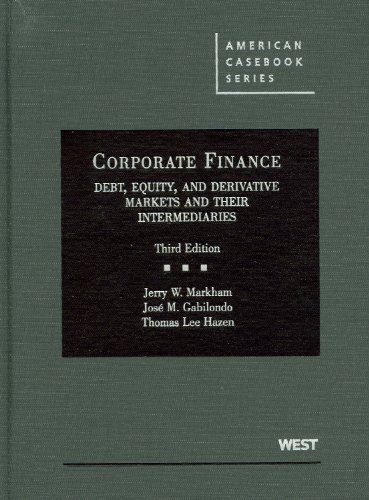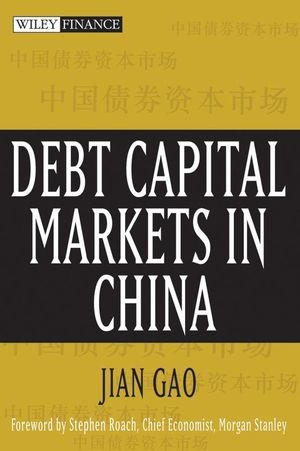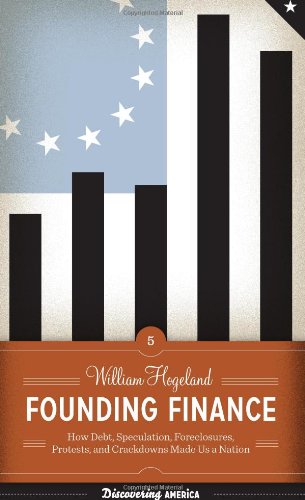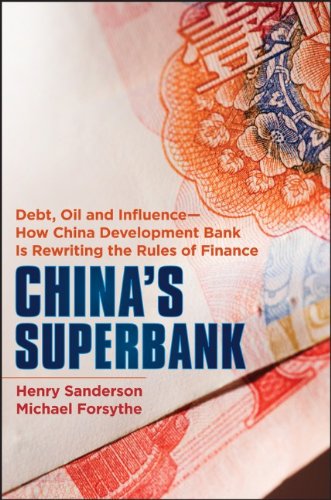[Finance] Videos
This casebook introduces students to the major instruments issued by corporations for funding and risk-management, including money market instruments, bonds and notes, junior and senior equity, government securities, futures, options, swaps, and other financial derivatives. Moving beyond the issuance market and instrument design, the book situates these instruments in their trading markets, giving students a comprehensive understanding of financial markets. The selected cases and materials highlight financial history, market structure, accounting standards, and a lawyer’s professional standards. Chapter objectives help students to track their progress. This edition has been updated to reflect recent financial reforms.
An in-depth look at China’s burgeoning capital markets
Author Jian Gao is the number one authority on fixed income markets in China, and with this book, he brings his considerable experience and knowledge about these markets to investors worldwide. For those interested in becoming active in China’s growing fixed income markets, Debt Capital Markets in China is the book you need to get started. It includes coverage of the primary and secondary markets, government debt instruments, corporate bonds, the collateralized bond market, and asset-backed securitizations. Debt Capital Markets in China also examines the developing market trends, which affect investors and institutions looking to make the most of this incredible financial opportunity.
Dr. Jian Gao, PhD (Beijing, China) is the Vice Governor of China Development Bank (CDB).
Recent movements such as the Tea Party and anti-tax “constitutional conservatism” lay claim to the finance and taxation ideas of America’s founders, but how much do we really know about the dramatic clashes over finance and economics that marked the founding of America? Dissenting from both right-wing claims and certain liberal preconceptions, Founding Finance brings to life the violent conflicts over economics, class, and finance that played directly, and in many ways ironically, into the hardball politics of forming the nation and ratifying the Constitution—conflicts that still continue to affect our politics, legislation, and debate today.
Mixing lively narrative with fresh views of America’s founders, William Hogeland offers a new perspective on America’s economic infancy: foreclosure crises that make our current one look mild; investment bubbles in land and securities that drove rich men to high-risk borrowing and mad displays of ostentation before dropping them into debtors’ prisons; depressions longer and deeper than the great one of the twentieth century; crony mercantilism, war profiteering, and government corruption that undermine any nostalgia for a virtuous early republic; and predatory lending of scarce cash at exorbitant, unregulated rates, which forced people into bankruptcy, landlessness, and working in the factories and on the commercial farms of their creditors. This story exposes and corrects a perpetual historical denial—by movements across the political spectrum—of America’s all-important founding economic clashes, a denial that weakens and cheapens public discourse on American finance just when we need it most.
Inside the engine-room of China’s economic growth—the China Development Bank
Anyone wanting a primer on the secret of China’s economic success need look no further than China Development Bank (CDB)—which has displaced the World Bank as the world’s biggest development bank, lending billions to countries around the globe to further Chinese policy goals. In China’s Superbank, Bloomberg authors Michael Forsythe and Henry Sanderson outline how the bank is at the center of China’s domestic economic growth and how it is helping to expand China’s influence in strategically important overseas markets.
100 percent owned by the Chinese government, the CDB holds the key to understanding the inner workings of China’s state-led economic development model, and its most glaring flaws. The bank is at the center of the country’s efforts to build a world-class network of highways, railroads, and power grids, pioneering a lending scheme to local governments that threatens to spawn trillions of yuan in bad loans. It is doling out credit lines by the billions to Chinese solar and wind power makers, threatening to bury global competitors with a flood of cheap products. Another $45 billion in credit has been given to the country’s two biggest telecom equipment makers who are using the money to win contracts around the globe, helping fulfill the goal of China’s leaders for its leading companies to “go global.”
Bringing the story of China Development Bank to life by crisscrossing China to investigate the quality of its loans, China’s Superbank travels the globe, from Africa, where its China-Africa fund is displacing Western lenders in a battle for influence, to the oil fields of Venezuela.
Offers a fascinating insight into the China Development Bank (CDB), the driver of China’s rapid economic developmentTravels the globe to show how the CDB is helping Chinese businesses “go global”Written by two respected reporters at Bloomberg News
As China’s influence continues to grow around the world, many people are asking how far it will extend. China’s Superbank addresses these vital questions, looking at the institution at the heart of this growth.
Product Features
- Used Book in Good Condition




